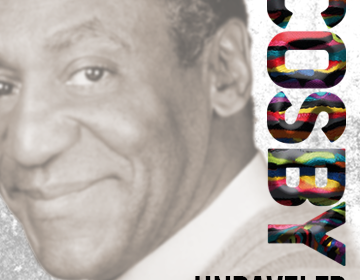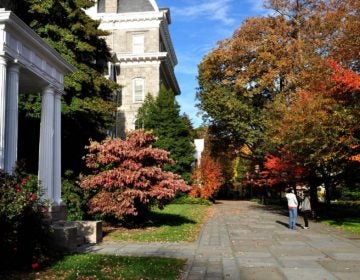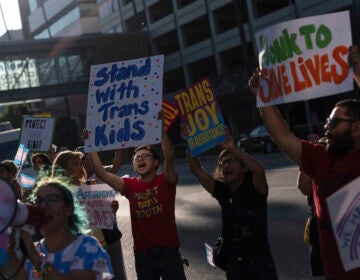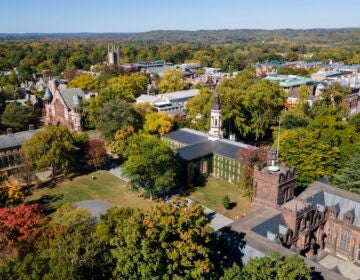#MeToo movement expected to bring different dynamic to Cosby retrial
How will the #MeToo conversation seep into our criminal justice system and the Cosby retrial?
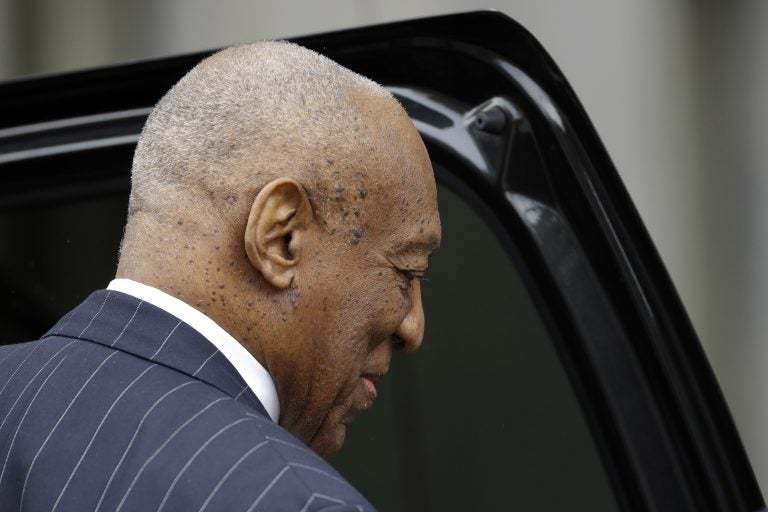
Bill Cosby departs after a pretrial hearing in his sexual assault case, Friday, March 30, 2018, at the Montgomery County Courthouse in Norristown, Pa. (Matt Slocum/AP Photo)
In early January, Philadelphia Inquirer reporter Laura McCrystal covered the first public sighting in Philadelphia of Bill Cosby since his mistrial last year.
The comedian dined with friends at an Italian restaurant — but it wasn’t your typical spaghetti dinner.
McCrystal said an Inquirer photographer introduced her to Cosby.
“He put out his hand to shake my hand and I said,’Hi.’ And he said, ‘Please don’t put me on Me Too. I just shook your hand like a man.’ ”
McCrystal didn’t presume to know what Cosby meant by his remark. But, like it or not, he is in the thick of #MeToo.
Since Cosby’s sexual assault trial ended in a hung jury in June, the #MeToo movement has exploded.
Scores of women are speaking out against male abusers, and they’re taking powerful men down.
As Cosby heads back into the same Montgomery County courtroom next week, the question becomes: How will the #MeToo movement affect the trial of the once-beloved comedian?
Until the fall, most people had never heard of #MeToo.
Tarana Burke, an activist with Philly roots, coined the term about 10 years ago while working with marginalized girls in Alabama.
But then, the Harvey Weinstein scandal broke. A-list actresses told their disturbing stories — Ashley Judd, Rose McGowan, Selma Hayek, Lupita Nyong’o. Suddenly, a hashtag morphed into a movement and women from all walks of life came forward to reveal their own experiences with sexual harassment.
“We’ve been forced to have a national conversation about why it is that women’s versions of stories haven’t been believed,” said Rebecca Traister, an author and journalist with New York Magazine.
The first Cosby trial was a preview of what’s happened on a national scale, she said.
“For years, there were these allegations against Cosby that had been made public, but that nobody really seemed to care about,” she said. “People knew about them, but nobody wanted to consider what they meant. Nobody really wanted to reckon with them.”
The question remains: How will the #MeToo conversation seep into our criminal justice system and the Cosby retrial?
Gloria Allred, a civil rights attorney who’s worked on women’s issues for more than 40 years and represents some of Cosby’s accusers, said there’s been a shift in the power dynamic.
“Now those who have been silenced, who have feared victim shaming and victim blaming, are speaking out. And now the accused are the ones who are afraid of being blamed and being shamed,” Allred said. “So, we’re living in a new age.”
This time around, the court has allowed five additional women to take the stand against the entertainer, including ’80s supermodel Janice Dickinson. Along with Andrea Constand, who once considered Cosby a mentor, these women will likely testify they were drugged and sexually assaulted by Cosby.
As for the accused?
“We don’t even know if he’ll take the witness stand. I doubt it,” Allred said.
Cosby’s defense team fought the introduction of other accusers. They argue that Cosby’s going to have a hard time getting a fair trial because of #MeToo.
Philadelphia civil rights attorney David Rudovsky said if he were defending Cosby, he’d address the #MeToo movement head on.
“You can’t put your head in the sand and say, ‘Oh well, I hope these 12 jurors don’t know anything about the #MeToo movement.’ They’ve heard about it,” he said.
Both sides will have to contend with #MeToo, especially when it comes to choosing a jury, he said.
During the last trial, a jury was brought in from the Pittsburgh area; this time, the panel will be selected from Montgomery County residents, but they will be sequestered.
In the end, it all may come down to how the jurors appraise the credibility of Constand.
However with five more witnesses testifying against the backdrop of the #MeToo movement, will her story of being drugged and molested carry more weight?
Allred said she’s hopeful.
“I’ve always asked how many women is it going to take before one woman is believed over the denial of a rich, powerful and famous man,” she said.
The consequences are serious. If the 80-year-old Cosby is found guilty, he faces 10 years behind bars, which could be a life sentence.
Annette John-Hall is the host of the WHYY podcast, “Cosby Unraveled.” Listen at whyy.org/cosby
WHYY is your source for fact-based, in-depth journalism and information. As a nonprofit organization, we rely on financial support from readers like you. Please give today.


